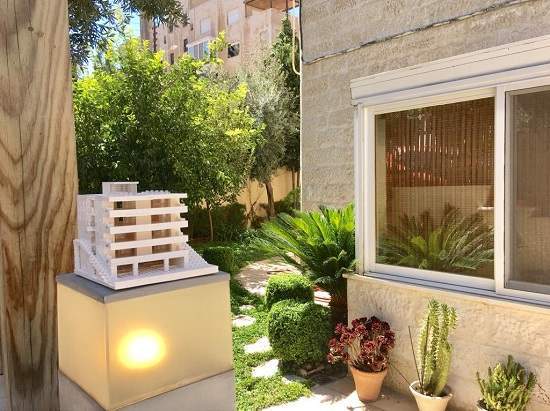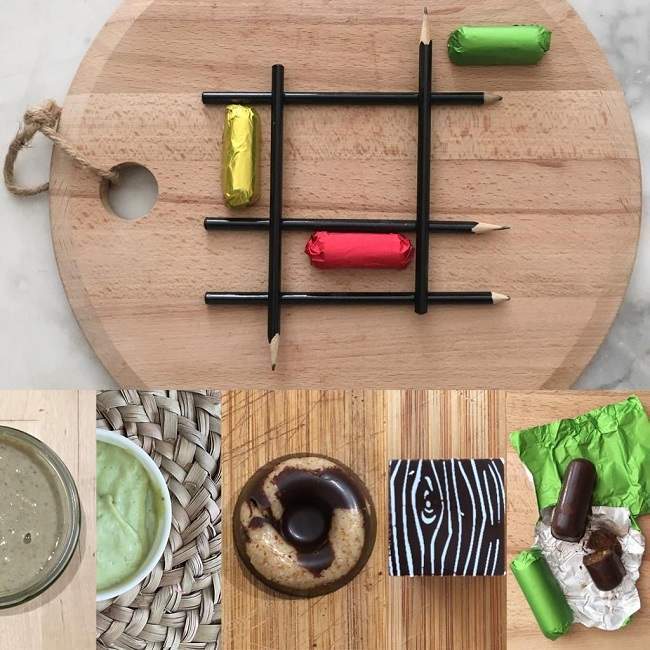AMMAN — Bejli Khedairi, founder of TMR Health Foods, is a Jordan born British citizen of Iraqi decent, and has been working in the food sector his entire life. He aims to develop eco-solutions that will have an impact on the lives of people in Jordan and the Middle East region.
اضافة اعلان
While
TMR Health Foods produces natural and organic products, Khedairi also proposes to build an “eco-embassy” in Jabal Luweibdeh, as a green community space for entrepreneurs to cooperate. Most of TMR’s products are produced in Khedairi’s own kitchen incubator then outsourced to farms, factories, or markets for volume.
The home-based business was founded six-years ago and started by producing healthy, organic, sustainable, local products. TMR derives from the Arabic word “Tamr”, which means dates in English, since the business originally started making organic date truffles.
“We chose the name TMR because it is easy for people. We already have thousands of years-worth of heritage date recipes. The building block was mixing original heritage health foods then adapting them for the 21st century,” Khedairi told the
Jordan News.
His business is a family affair for the most part, his two daughetrs Safa and Aya, work on producing handmade natural and organic foods. His two grandchildren Eliyas and Sophia, are his UK taste quality controlers. “Khaleeda our raw health food chef, and Kareem her son, head our digital business development jointly,” Khedairi said.
He was born into a family food farm business that began organically but became a processed food factory. “When we moved to the UK, we discovered that most industrial foods were processed and not organic, so I began learning about organic food, social change, peace, and ecology again, and then returned to Jordan to put it all together,” Khedairi said.
 TMR Health Foods’ headquarters in Jabal Luweibdeh, which features a miniature Lego model of building. (Photo: Handout from TMR Health Foods)
TMR Health Foods’ headquarters in Jabal Luweibdeh, which features a miniature Lego model of building. (Photo: Handout from TMR Health Foods)
He revived old recipies, modified them to match traditional tastes popular in the Jordanian community, the UK, and throughout the world. Among those recipies are cocoa date cubes, raw health bars, soft Halawa jars made with tahini, honey and nuts, and seasonal vegan “nice cream” cups. He combined his family business knowhow, and skills learned from studying and working with health practitioners.
He aims to grow the business with his family and new world partners. TMR is expanding within the ecosystem in Jordan, cooperating with the right strategic partner. “The business started at home, and if it grows, there will be a factory and a farm ready for expansion away from traditional ways of growth, it will be an incubated collaboration,” Khedairi said.
He describes TMR as a kitchen incubator, which is a fully equipped food processing and development facility that allows entrepreneurs or food processing operators to expand their product offering. The kitchen incubator consists of a holistic library, books Khedairi collected over time on recipies, a meeting area, a community table, a micro shop, a sample library and creative rooms.
“It’s like a micro-factory with tabletop machines, or a compressed micro company, when the business grows, it will go out spreading its wings to a factory, a farm, and a market,” Khedairi said.
 A selection of TMR Health Foods products (Photo: Huda Dabeet/ Jordan News)
A selection of TMR Health Foods products (Photo: Huda Dabeet/ Jordan News)
TMR Health Foods products include date bars with appricots and oats, and cocoa balls/squares/bars made from Jordanian Majhool dates, almond chips, coconut sugar, and Ghanaian cocoa. Khedairi said that 90 percent of their effort goes into educating people about healthy lifestyle food choices, and ten percent goes into marketing and sales.
He stressed the importance of raising awareness of the nutrients in foods and their importance for human health. Khedairi wishes to develop new ways of thinking about everything, from how food is made to how people function healthily in an ecosystem.
“I explored various areas in Jordan to find an appropriate location for my business, I found a plot of land at a reasonable price in Jabal Al Luweibdeh, which is a very accepting and embracing mountain of unique cultural concepts, and then we started imagining how best we can unfold the holistic green vision,” Khedairi said. He envisioned Jabal Al Luweibdeh as a large urban eco-village.
He also aims to build a green heritage building with five levels including roof and green building eco-systems infrastructure, co-work and co-living space, service, market, office and workshop floor, and kitchen incubator and garage gardens floor. The aim is to provide a low-cost location by involving others. “So it’s not just our kitchen, it’s a community kitchen incubator, and it’s part of the kitchen floor, the garden floor, and the market floor,” Khedairi said.
The Jabal Al Luweibdeh project has slowed due to financial and investment challenges, although the research, design, and study phase is complete. “We want to build a safe space that supports the community development work we do.”
Outdated laws, slow public institutions with rules set in stone, and the several thousand dinars cost to start a company in Jordan, are all obstacles to business, Khedairi said. “If you start a business from home with a Jordanian partner, it may cost you tens or hundreds of dinars. Hopefully, it will work overtime,” he said.
Read more Business news



